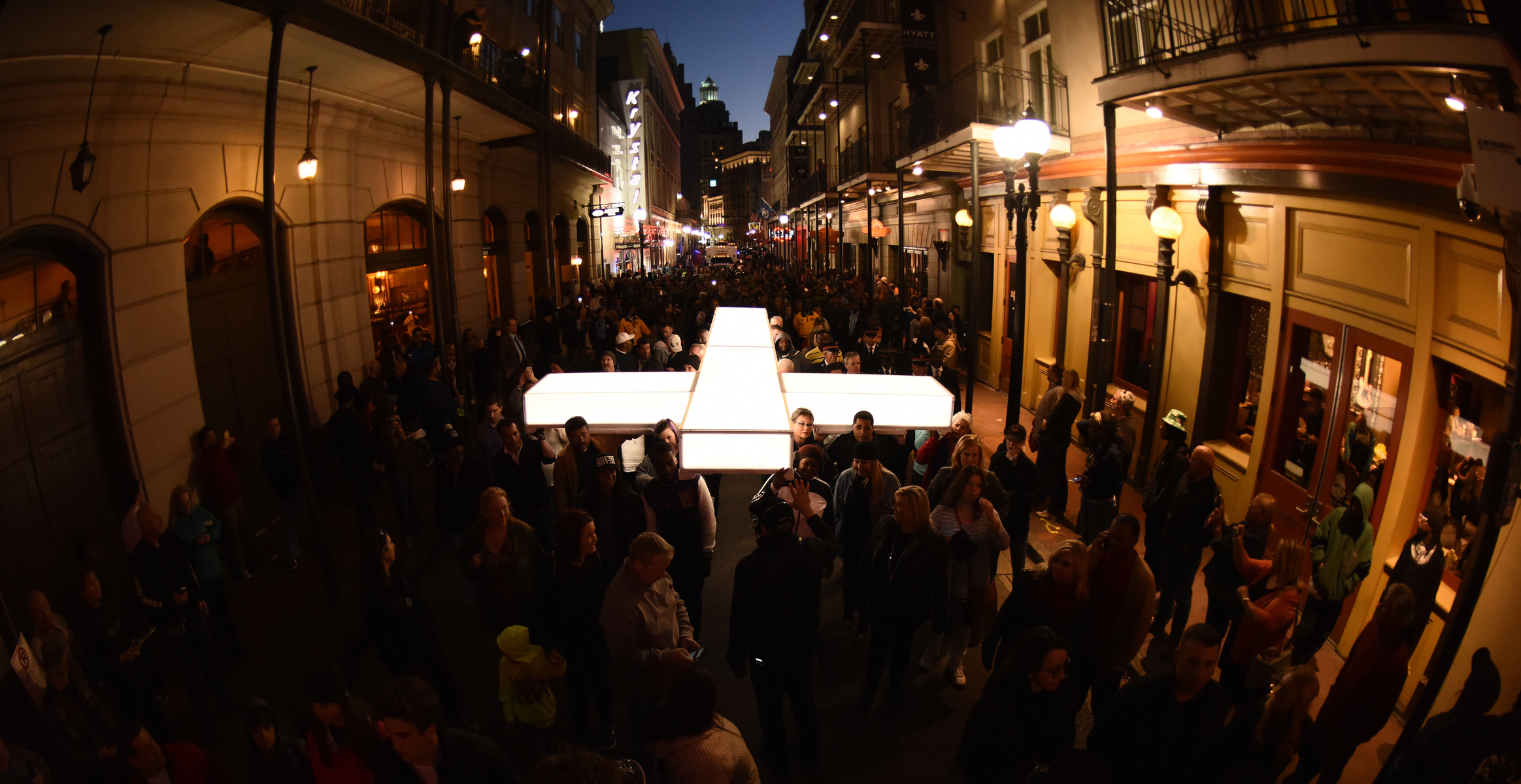
On Sunday night, FOX aired The Passion, a two-hour live primetime special shot through the streets of New Orleans that relived the final hours of Jesus’s life. The sometimes inspiring and other times strange rendition of Jesus’s death was a strong public display of faith as Christians enter into Holy Week, the faith’s climatic final days before the upcoming Easter festivities.
At its best, the show was an uplifting and memorable account of how Jesus’s suffering, death and resurrection was not just an historical event limited to first-century Palestine, but also a cosmic event with implications for people of every generation. At its worst, it was a strange and superficial pep rally that glossed over the brutal final hours that marked Jesus’s execution.
A thematic element woven throughout the show was that Jesus’ suffering and redemption was connected to New Orleans’ own suffering and redemption. Jesus’s cross was imposed by the Roman authorities, while New Orleans’ was at the hands of Katrina, the 2005 hurricane that killed more than 1,000 people, devastated and displaced millions and nearly destroyed the Crescent City. The Passion‘s host Tyler Perry led hundreds in songs and prayers in downtown New Orleans.
Particular credit must be given to the writers and producers for making it clear that it was in fact the Romans who killed Jesus of Nazareth. Too many recent productions of Jesus’ final days have suggested or outright claimed that the Jewish people were responsible for the carpenter’s death. The biblical and historical accounts reject the falsehood, and FOX’s The Passion did so as well.
Unfortunately, however, the production did highlight some of the excesses and weaknesses of modern Christianity in the U.S. At times, The Passion felt like a pep rally reminiscent of the 1997 political comedy Wag the Dog. In the movie, a Hollywood producer and political insiders work together to fabricate a war—along with the accompanying patriotic rallies and festival—in order to cover up a presidential sex scandal. The trappings of last night’s event—the music, the celebrities and the visuals—might have made it suitable for a primetime television audience, but it covered up what really happened on a hill outside of Jerusalem two millennia ago.
In particular, the theatrics blinded the audience to the reality that Jesus’s execution was brutal and terrible. Too often our familiarity with the story of Jesus’s suffering and death tends to domesticate the horrors of the cross. But we should make no mistake: this was no hack job. Jesus was the victim of a Roman execution by crucifixion, the greatest tool of Caesar’s state-sponsored terrorism.
Though The Passion tried its best to communicate that scene of horror in song, somehow a pop rock ballad about generic love and breakup didn’t do justice to such a reality. Though it is one of the most memorable stories in human history, Jesus’s death was not news in his own time.
The production, complete with a live crowd, field correspondents and pep bands made Jesus’s death seem like a star-studded event and a front-page story. But the truth is quite different. The story of a rebellious Jew being executed by the Roman authorities would have been stuck behind the box scores if there were a first-century Jerusalem Times.
Jesus died naked, cold and with two criminals, while his mother and his friend looked on. No bands were present, the cross didn’t light up, and it wasn’t sponsored by Verizon.
Perhaps The Passion will be this generation’s Jesus Christ Superstar, teaching today’s faithful and curious the story of the life of Jesus of Nazareth. But like so many attempts to recreate drama, it wasn’t nearly as good as the original.
More Must-Reads from TIME
- L.A. Fires Show Reality of 1.5°C of Warming
- Behind the Scenes of The White Lotus Season Three
- How Trump 2.0 Is Already Sowing Confusion
- Elizabeth Warren’s Plan for How Musk Can Cut $2 Trillion
- Why, Exactly, Is Alcohol So Bad for You?
- How Emilia Pérez Became a Divisive Oscar Frontrunner
- The Motivational Trick That Makes You Exercise Harder
- Zelensky’s Former Spokesperson: Ukraine Needs a Cease-Fire Now
Contact us at letters@time.com